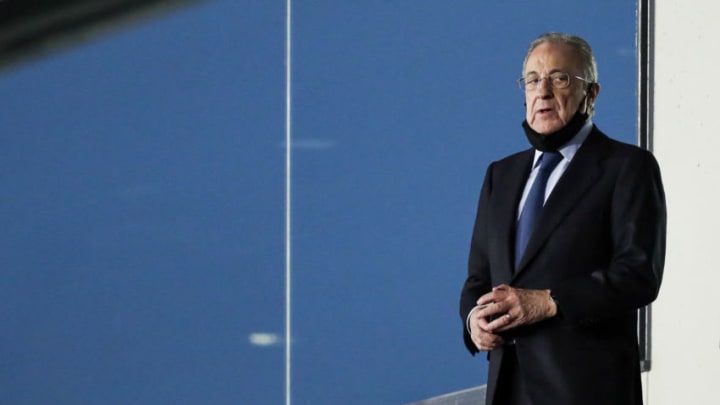
The European Super League was announced with great fanfare, but just as dramatically, it collapsed a few days later as the founding teams reacted to vocal opposition.
And this is a very, very good thing. It shows the power that the people, the writers, pundits, supporters and players still retain in the world of global and European football. What was witnessed, that is, the full cooperation of all fans, of all clubs, regardless of rivalry or history, towards a shared aim.
When that aim was fulfilled, and the European Super League lay in ruins, on “stand-by” to quote Florentino Perez of Real Madrid, it became a joyous moment for fans, although it is one that most recognize is momentary. Why? Because the owners, without the proper punishment, will likely attempt something similar in the future.
European Super League effort comes up short … for now
I have suggested ideas in other pieces to the tune of starting clubs with negative points next season, to fixing their player salaries, to additional games for European competitions. Another idea that I have read about is more intriguing, however, despite the unknowns surrounding its legality from a practical standpoint.
Movements like #KroenkeOut, #GlazersOut and so on are useful for exerting public pressure on clubs that depend on public revenue, yet should this strategy work, the next problem arises: who might be better? Yet better still, might the best recourse, be to force the sale of these clubs by their current owners? The fans efforts are beautiful, yet they may not even be necessary; the bureaucracy, should it have the power, would be better off, in the nations they find themselves able to, forcing the sale of these clubs.
To this end, The Tribune recently ran a piece which discusses Newcastle United post-Saudi Arabian PiF takeover attempt and pre-Mike Ashley resolution. It suggests that the fans might be able to purchase the club, to run as a public club as Arsenal once did, and as others clubs have as well; some continue to do so in some capacity.
More from Playing for 90
- Alexia Putellas reaches 400 games with Barcelona
- Everything you need to know ahead of the 250th ‘Super Clásico’
- Barcelona put five past Real Betis
- Manchester City suffer but come away with win over West Ham
- Baffling Liga MX ruling strips Puebla of a hard-earned victory
This notion is perfect and most equitable as the proper recourse for all of this; the fans should own the clubs they love and should have a hand in their care. These clubs are of the people, for the people and by the people, and American owners like the Glazers, the Henrys and the Kroenkes fail to observe the traditions and customs of the societies they are entering; their punishment should be that the clubs go up for sale and that the supporters of each can fund a trust to purchase the team in their stead. Everyone would win, other than the owners, and that’s positive, for they could stand to learn something through all of this.
In my own opinion, American sports would do better to take on this FIFA model over their own, tiny and unambitious models. Sports is bigger than any nation, it is the entire worlds to enjoy and to progress in; the model that international soccer uses across nations and continents is not perfect and mute be improved upon, yet creating a European Super League is far from the correct way to approach this.
No, in fact, more teams must have more money. That does not come from the biggest teams having the most money, only to let it trickle down over the course of transfer windows and so on. The best and indeed only way to create a healthier football is for football to spread more of its money around, even more equitably.
This is the only way forward, and I am of the opinion that this European Super League stunt has in fact, hurt their negotiating stances moving forward. Not only did the world of soccer go berserk after the decision, but the very fans of the clubs who were doing it got most angry. Football will recover from this plague and the effects it has left upon the sport and of course the nations and their population, yet when it does, those massive clubs may never see the money they once dreamt of.
They will have to share more equitably, they will face tougher competition as more quality comes into each league that they are incapable of claiming and hogging all for themselves. These massive teams, will face further glory, yet also hard times; they cannot lock themselves into an eternal European Super League to secure their bank statements for the rest of time. They must play as fair as everyone else in regards to football and remaining in a league, whether that is in their own nation or in Europe as a whole.
While this isn’t the last we’ve heard of this idea and ideas like it, it is a real signal to all involved on where we stand. The owners want more money and the fans want better football. Better football comes from more equitable football, not a more isolated and contrived football; the fans will win the day every time should they voice themselves as they did this month. They pay the bills ultimately, and while these owners can speak as large a game as they wish, we all know at the end of the day who pays for those suits; football belongs to the people and the people will always decide how football should be.
